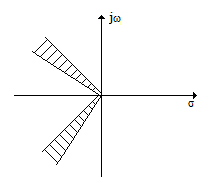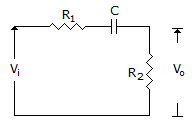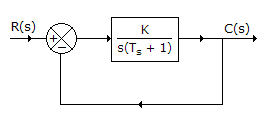ECE :: Automatic Control Systems
-
For the second order system having following differential equation

(When θ0 and θi are output and input) the natural frequency is -
For a second order system, the position of poles is in the shaded region shown in the given figure. The variation in damping factor is

-
For a factor
 in the transfer function, the log magnitude plot
in the transfer function, the log magnitude plot -
The frequency at which magnitude of closed loop frequency response is 3 dB below its zero frequency value is called critical frequency.
-
In a second order system, the time constant t of exponential envelopes depends
-
The maximum shift which can be provided by a lead compensator with transfer function
 is
is -
The network of the given figure is a

-
The resistance R of a liquid flow system is defined as





 Whatsapp
Whatsapp
 Facebook
Facebook


 gives a straight line with a slope of - 40 dB/decade.
gives a straight line with a slope of - 40 dB/decade. has the characteristics of high pass filter.
has the characteristics of high pass filter.

 = 0.5 or Φm = 30°.
= 0.5 or Φm = 30°.





 .
.

 , level difference or head is analogous to v and change in flow rate is analogous to current.
, level difference or head is analogous to v and change in flow rate is analogous to current.